Southern Fried Scientist

Andrew is a graduate student in North Carolina studying population genetics in hydrothermal vent communities.
WhySharksMatter

David is a graduate student in Florida. He studies the ecology and conservation of sharks.
Bluegrass Blue Crab

Amy is a graduate student in North Carolina studying local ecological knowledge within small scale fisheries.
|
By WhySharksMatter, on October 23rd, 2011 
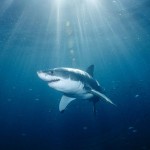 Great White Shark. Image courtesy animals.NationalGeographic.com Last week, I wrote about three current shark conservation issues, including a proposed shark cull in Western Australia. Barbara Wueringer was able to deliver her letter to Western Australian government officials on Friday, and thanks to your help, it was signed by more than 100 scientists and conservationists from all over the world.
Yesterday, however, another swimmer was killed by a shark in Western Australian waters. George Thomas Wainwright, 32, was a native of Texas who had been working on a boat in Australia. This attack, which is the third in the last two months, has resulted in renewed calls for a “shark cull”. The proposed plan would involve both an attempt to kill the specific shark responsible for killing Mr. Wainwright and a more general killing of all the sharks in the area. It is believed that the shark that killed Mr. Wainwright was a great white shark, also known as a ”white pointer” in Australia.
Continue reading Western Australia’s sharks need your help!
By WhySharksMatter, on October 21st, 2011  My lab, the RJ Dunlap Marine Conservation Program at the University of Miami, will be hosting a series of Twitter teach-ins on marine biology and conservation topics. Each teach-in will cover a topic in a series of Tweets, including links to photos and videos, as well as NGO reports, blog posts, and scientific papers which people can read to find more information. I will RT important points from my Twitter account (@WhySharksMatter), but the teach-in itself will take place from the RJ Dunlap program’s Twitter account (@RJ_Dunlap) and include hashtag #RJDTeachIn. My lab, the RJ Dunlap Marine Conservation Program at the University of Miami, will be hosting a series of Twitter teach-ins on marine biology and conservation topics. Each teach-in will cover a topic in a series of Tweets, including links to photos and videos, as well as NGO reports, blog posts, and scientific papers which people can read to find more information. I will RT important points from my Twitter account (@WhySharksMatter), but the teach-in itself will take place from the RJ Dunlap program’s Twitter account (@RJ_Dunlap) and include hashtag #RJDTeachIn.
 I encourage anyone interested in participating in the teach-in to follow (and encourage your friends, colleagues, and Twitter followers to follow) @RJ_Dunlap. I also encourage people to RT important points for their own followers. I encourage anyone interested in participating in the teach-in to follow (and encourage your friends, colleagues, and Twitter followers to follow) @RJ_Dunlap. I also encourage people to RT important points for their own followers.
Each teach-in will take approximately 20-30 minutes. Following each teach-in, there will be an opportunity for anyone to ask us questions. We will answer any question that people ask us.
The topic of the first RJD teach-in, which will take place Monday at 1:00 EST, will be overfishing. Future topics will include invasive species,bycatch, seafood sustanability, marine protected areas, shark biology and conservation, sea turtle biology and conservation, ecotourism, and more- stay tuned! Additionally, if you have a topic you’d like to hear more about, let us know in the comments section of this post and we may host a teach-in about it.
The mission of the RJ Dunlap Marine Conservation Program is to “advance STEM (Science, Technology, Engineering and Math) literacy and marine conservation by combining cutting edge research and outreach activities”, and we hope that these Twitter teach-ins will help us to advance that mission. I hope that you’ll follow along with the first teach-in Monday at 1 EST, and I hope that you’ll encourage your followers to do the same.
By Southern Fried Scientist, on October 21st, 2011 The bliggityblogsphere has been abuzz with recent finding by the Berkeley Earth Project that independently confirm that global climate change is real. From the BBC:
The Earth’s surface really is getting warmer, a new analysis by a US scientific group set up in the wake of the “Climategate” affair has concluded.
The Berkeley Earth Project has used new methods and some new data, but finds the same warming trend seen by groups such as the UK Met Office and Nasa.
source
Phil Plait, the Bad Astronomer, has a nice, in depth write-up, that provides some caveats missing from most of the press releases: New independent climate study confirms global warming is real.
Continue reading Climate change deniers continue to be wrong, science words with friends, and support science in the classroom
By WhySharksMatter, on October 19th, 2011 
While we can all celebrate the recent passage of California’s shark fin ban, sharks still need your help! The government of Western Australia is planning a “shark cull”, intentionally killing large numbers of threatened species to reduce the probability of shark attacks. The Marine Stewardship Council is considering granting “sustainable” status to a fishery with huge shark bycatch issues (an issue we originally covered last year). The European Union, one of the largest shark fishing entities in the world, still has large loopholes in their shark fishing policy. In the past few weeks, I’ve been contacted by conservation organizations working on these issues, and they need our help! Please consider signing the petitions listed below, and please consider telling interested friends and colleagues. As I’ve written many times before here on Southern Fried Science, I don’t support just any petition, but these are all from legitimate people and organizations and I have chosen to sign all three.
Continue reading Culling, bycatch, and loopholes: three shark conservation petitions need your signatures!
By Southern Fried Scientist, on October 19th, 2011 It’s finally here, that momentous day where, once a year, we come together to celebrate the strange, weird, gross, and outright ugly in the animal kingdom. It’s Hagfish Day!
Check out WhaleTimes for some outstanding educational material on the beauty of the ugly, including an interview with yours truly on a pair of exceptionally cool deep sea snails. Also featured this year is the Rattail Fish.
Merry Hagfish Day, you wonderful old provannid gastropods. Merry Hagfish Day, Everyone!
By Southern Fried Scientist, on October 18th, 2011  If you haven’t seen the excellent post on Mountain Beltway - Words matter – you should head over there and take a look. The post brought up some interesting ideas about word choice, and how the common definition of a word may convey a different meaning than the scientific definition. For science communicators, this may lead to confusion and misunderstanding between you and your audience. If you haven’t seen the excellent post on Mountain Beltway - Words matter – you should head over there and take a look. The post brought up some interesting ideas about word choice, and how the common definition of a word may convey a different meaning than the scientific definition. For science communicators, this may lead to confusion and misunderstanding between you and your audience.
I presented this table to my Science and Nature Writing class this morning and asked my students to come up with other terms that may also have multiple, opposing meanings. This impressive list is what they produced:
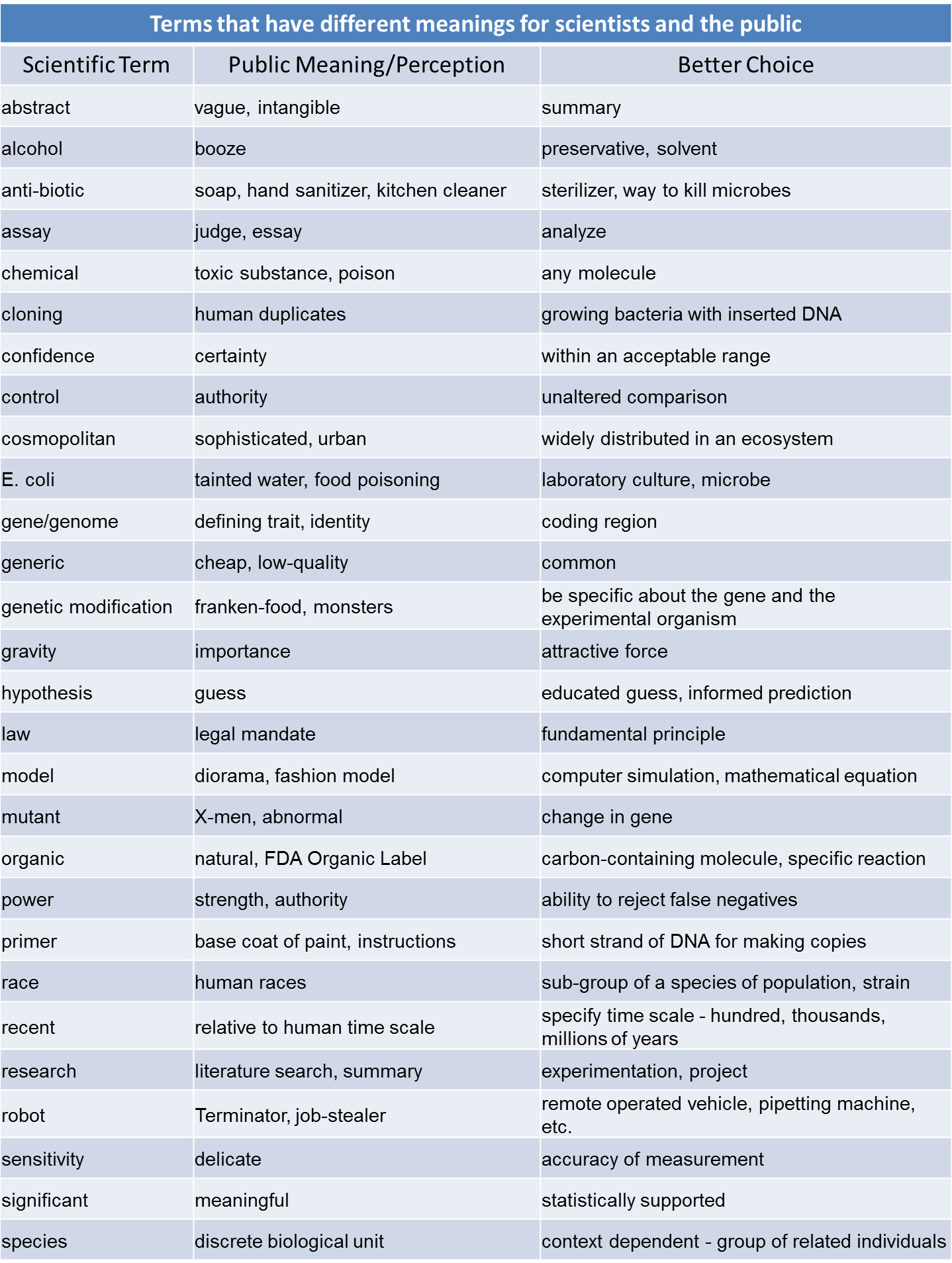
There are obviously hundreds, if not thousands of other terms that could fit this list. So, in the spirit of collaboration and crowdsourcing, I’ve created a public Google Docs spreadsheet as a repository of confusing scientific terms. Feel free to add as you see fit, but do not delete anything. Feel free to add additional “Better Choices”. Please stick to words that clearly have multiple meanings, and not just difficult scientific concepts.
The editable spreadsheet is here - Terms that have different meanings for scientists and the public
Update: read the original paper that started this all: “Communicating the science of climate change“
By Southern Fried Scientist, on October 17th, 2011
By Southern Fried Scientist, on October 14th, 2011 
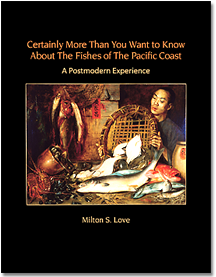 There is a website floating around the interwebs entitled “So you want to be a marine biologist?” that most future marine biologists who came of age in the early 21st century have encountered. The sage page of advice is followed up with “So you want to be a marine biologist, the revenge“. Reading through these two essays, one might come to the conclusion that their author, Dr. Milton Love of the University of California, Santa Barbara, should compose a voluminous tome to the fishes of the Pacific coast. Which is exactly what he’s done. Welcome to Certainly More Than You Want to Know About The Fishes of The Pacific Coast: a postmodern experience. There is a website floating around the interwebs entitled “So you want to be a marine biologist?” that most future marine biologists who came of age in the early 21st century have encountered. The sage page of advice is followed up with “So you want to be a marine biologist, the revenge“. Reading through these two essays, one might come to the conclusion that their author, Dr. Milton Love of the University of California, Santa Barbara, should compose a voluminous tome to the fishes of the Pacific coast. Which is exactly what he’s done. Welcome to Certainly More Than You Want to Know About The Fishes of The Pacific Coast: a postmodern experience.
Despite it’s self-aware title, this book is far more than just an exhaustive guide to the fishes of the Pacific, though it certainly is that. The highly detailed taxonomic descriptions are rich with humor and insight into the ecology, behavior, and physiology of, if not each species, than each genus or species complex. Interspersed among the taxa are descriptions of prominent Pacific researchers, anecdotes from a lifetime of work on the water, stories by people who lived, worked, and fished these species, and the occasional poem, song, or limerick. Somehow, these disparate units manage to complement each other in a way that makes you want to read what is essential a taxonomy textbook cover-to-cover.
Continue reading Just enough about “Certainly More Than You Want to Know About The Fishes of The Pacific Coast” to pique your curiosity
By Bluegrass Blue Crab, on October 11th, 2011 
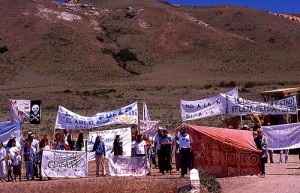 Protests at Esquel, one of the communities examined in the article. Thanks articles.riderdownload.com Buried within the depths of Andean geology lie small seams of gold tempting worldwide investors. These money-lined pockets aid the development of new extraction methods that dissolve gold from the mountains using cyanide. Cyanide is a metabolic poison, shutting down cellular respiration. In the wake of cyanide leaching stand piles of rubble and contaminated rivers where forested mountains and their people once stood. Surprisingly, Andean residents are willing to entertain the possibility of gold mining by this poisonous method, but oppose current mine development on environmental justice measures. A recent study by Urkidi and Walter in the journal Geoforum documents the emergence of justice narratives from mining conflicts in the Andes and predicts impacts on future development planning. Continue reading The Curse of Gold: Dimensions of Injustice in Gold-Mining Communities
By WhySharksMatter, on October 10th, 2011   At the 2nd International Marine Conservation Congress, Dr. Nick Dulvy and the IUCN Shark Specialist Group organized a special symposium called “Securing the Conservation of Sharks and Rays”. This symposium featured leading scientists, international policy experts, the founder of a creative non-profit, a National Geographic conservation photographer… and me. It was, without a doubt, the greatest professional honor of my (admittedly brief so far) career. At the 2nd International Marine Conservation Congress, Dr. Nick Dulvy and the IUCN Shark Specialist Group organized a special symposium called “Securing the Conservation of Sharks and Rays”. This symposium featured leading scientists, international policy experts, the founder of a creative non-profit, a National Geographic conservation photographer… and me. It was, without a doubt, the greatest professional honor of my (admittedly brief so far) career.
Continue reading Securing the Conservation of Sharks and Rays
|
|






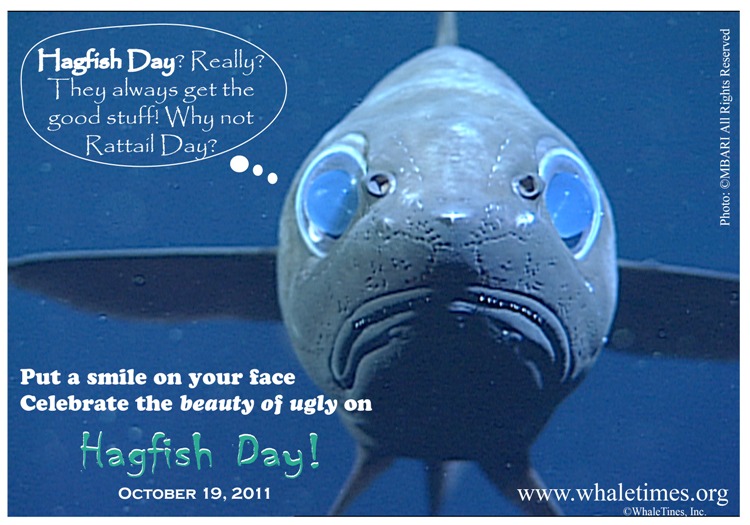








Comments
Turtle excluder devices: analysis of resistance to a successful conservation policy
Turtle excluder devices: analysis of resistance to a successful conservation policy
Turtle excluder devices: analysis of resistance to a successful conservation policy
Turtle excluder devices: analysis of resistance to a successful conservation policy
The Importance of Word Choice: Terms with multiple meanings for scientists and the public
Climate change deniers continue to be wrong, science words with friends, and support science in the classroom